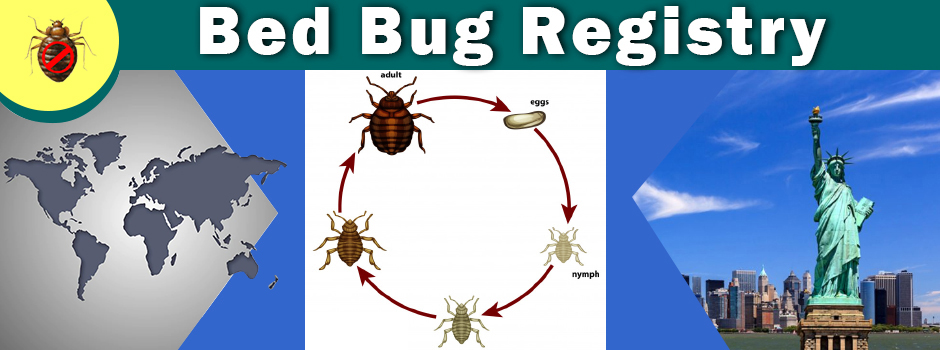Bed Bug Repellent
 Although we have not specifically tested mosquito repellants on bed bugs, we have tested repellant insecticides. Bed bugs do not seem to respond in the slightest to repellent insecticides. In fact, they will sit on top of them until they die. These results have been confirmed by the older bed bug literature (Usinger 1966) who stated that many repellant materials were applied to bed frames in an attempt to keep bed bugs from crawling up, but none had any effect. Because we have not tested repellants on skin, we can't say for sure whether bed bugs would be willing to stick their mouth parts though repellant treated skin or not. But we have found bed bugs to be very determined little creatures and I think it would be hard to stop a hungry bed bug. In addition, the repellants that you buy for mosquitoes last only a couple of hours before the effects begin to wear off. If you apply a repellant before getting into bed, a lot of the material could rub off on the sheets etc. Also, bed bugs are most active between 3 and 5 am, which is several hours after the time you would have put the on the repellant to go to bed. Bottom line, a repellant may prevent you from getting a bite or two but I do not believe that they will significantly hinder a hungry bed bug.
Although we have not specifically tested mosquito repellants on bed bugs, we have tested repellant insecticides. Bed bugs do not seem to respond in the slightest to repellent insecticides. In fact, they will sit on top of them until they die. These results have been confirmed by the older bed bug literature (Usinger 1966) who stated that many repellant materials were applied to bed frames in an attempt to keep bed bugs from crawling up, but none had any effect. Because we have not tested repellants on skin, we can't say for sure whether bed bugs would be willing to stick their mouth parts though repellant treated skin or not. But we have found bed bugs to be very determined little creatures and I think it would be hard to stop a hungry bed bug. In addition, the repellants that you buy for mosquitoes last only a couple of hours before the effects begin to wear off. If you apply a repellant before getting into bed, a lot of the material could rub off on the sheets etc. Also, bed bugs are most active between 3 and 5 am, which is several hours after the time you would have put the on the repellant to go to bed. Bottom line, a repellant may prevent you from getting a bite or two but I do not believe that they will significantly hinder a hungry bed bug.
Bed bugs can get in your hair but the good news is that they really don't want to be there. Unlike fleas and lice that have bodies or claws that are specifically designed for navigating through hair, the common bed bug does not have these modifications. In fact, bed bugs need to set their front claws in a particular position so that they can insert their mouthparts into the skin just so, in order to be in the proper feeding position. Hair on the human head would make this very difficult. They would much prefer to feed on the bare skin. If they encountered your head first, they would most likely move to your face (many people suffer face bites) or some other less hairy area to feed. If you are bald, well, the head is fair game.
The best solution is to avoid bringing bed bugs home in the first place. When you travel, carry a bed bug repellent sachet in your luggage. This will help protect your belongings, and the aroma on your nightclothes will make the pests think twice before biting you.
Bed bug spraysare much more convince than say powders or other products forbed bug infestation. Because of their ease and convenience, they also pose the most danger. What is inside a repellent? Bed Bug repellents are made up of in secticidal dusts, which is the most potent compared to otherpesticides. This substance destroy the bed bugs' outer coats, which drys them out easily . What makes up thesepesticidesare fine granules of silica powder orground glassto ensure efficiency. This fact makes it very harmful to humans, too. Insecticidal dusts are often applied to crevices or cracks in the floor or wall that are suspiciously infested with bed bugs.
The next option left is to properly dispose of infected items. You will not want to just go and dump these items for the local sanitation dept to pick up as they can pose a serious problem for you and nearby homes, not to mention employees that work for the sanitation dept. But what you do want to do is encase them into plastic zipped bags so that the bed bugs are trapped inside and are not easily transferred somewhere else, or worse yet brought back home again.
 Yes bed bug repellents are just as varied as the bed bug themselves. Haphazardly taking action can put you and members of your household in danger, so please do not take this lightly. For review here are the necessary steps for you to follow again:
Yes bed bug repellents are just as varied as the bed bug themselves. Haphazardly taking action can put you and members of your household in danger, so please do not take this lightly. For review here are the necessary steps for you to follow again:
Good smelling natural insect repellent that works without DEET -- what a concept! Crocodile makes just such a DEET-less all natural insect repellent -- not bad for your skin or the planet. Field-tested by me on mosquitoes and sand fleas, this natural insect repellent works almost as well as DEET but has a better bouquet. I have reservations about getting personal with goop that I must pat lightly on my clothes for fear that it may touch my skin (that would be DEET). Crocodile natural insect repellent smells good. And I can drink it in a pinch (okay -- not really).

 Residence
Residence  Location
Location 

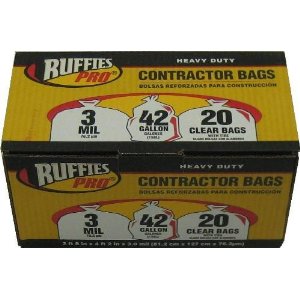

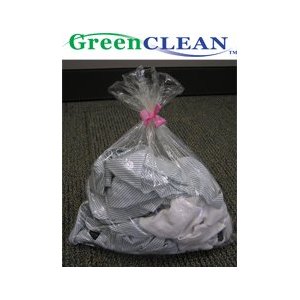
 Bed bugs are remarkable examples of evolution in action. Some species are in evolutionary stasis, but the bed bug is active and never static, this process of constant change and adaptation being a requirement if a bug is going to survive by targeting a human being.
Bed bugs are remarkable examples of evolution in action. Some species are in evolutionary stasis, but the bed bug is active and never static, this process of constant change and adaptation being a requirement if a bug is going to survive by targeting a human being. 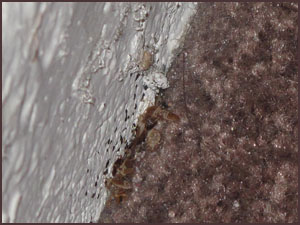 When bed bugs are raised in laboratories they are kept alive by feeding them through the use of membranes containing either pig or chicken blood. Since bed bugs were once sap suckers instead of blood suckers like they are now, it has occurred to me that given how evolutionary active this species, it would be an interesting experiment in living evolution to begin the process of weaning bed bugs off of human blood and back onto plant sap. For you see, bed bugs are just bugs and they are currently trapped in an endless cycle of battling with some unwilling human host for the blood they now require if their species is to survive. Since a human being is the partner of that bug in this symbiotic relationship, and since it is the human who has all the brains in that symbiotic relationship, it should be possible for the human being to use those brains to train bed bugs to find a new food source, and thus bring the battle between bed bugs and human beings to a permanent end, by '˜exterminating' the bed bug species by weaning them off of human blood.
When bed bugs are raised in laboratories they are kept alive by feeding them through the use of membranes containing either pig or chicken blood. Since bed bugs were once sap suckers instead of blood suckers like they are now, it has occurred to me that given how evolutionary active this species, it would be an interesting experiment in living evolution to begin the process of weaning bed bugs off of human blood and back onto plant sap. For you see, bed bugs are just bugs and they are currently trapped in an endless cycle of battling with some unwilling human host for the blood they now require if their species is to survive. Since a human being is the partner of that bug in this symbiotic relationship, and since it is the human who has all the brains in that symbiotic relationship, it should be possible for the human being to use those brains to train bed bugs to find a new food source, and thus bring the battle between bed bugs and human beings to a permanent end, by '˜exterminating' the bed bug species by weaning them off of human blood.  My proposal for such an experiment would involve diluting the blood contained in feeding membranes with a small amount of sap from plants. With each generation of bed bugs produced, the amount of sap would be increased and the amount of blood gradually reduced. Since bed bugs are such adaptable creatures, given enough time, and enough generations of bed bugs, I would expect their to emerge at the end of the experiment a strain of '˜plant bugs' which is where bed bugs first began their evolutionary journey, and where they must return.
My proposal for such an experiment would involve diluting the blood contained in feeding membranes with a small amount of sap from plants. With each generation of bed bugs produced, the amount of sap would be increased and the amount of blood gradually reduced. Since bed bugs are such adaptable creatures, given enough time, and enough generations of bed bugs, I would expect their to emerge at the end of the experiment a strain of '˜plant bugs' which is where bed bugs first began their evolutionary journey, and where they must return. 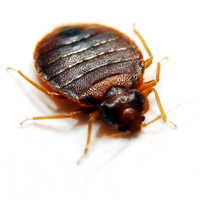 When bedbugs are raised in laboratories they are kept alive by feeding them through the use of membranes containing either pig or chicken blood. Since bedbugs were once sap suckers instead of blood suckers like they are now, it has occurred to me that given how evolutionary active this species, it would be an interesting experiment in living evolution to begin the process
When bedbugs are raised in laboratories they are kept alive by feeding them through the use of membranes containing either pig or chicken blood. Since bedbugs were once sap suckers instead of blood suckers like they are now, it has occurred to me that given how evolutionary active this species, it would be an interesting experiment in living evolution to begin the process  of weaning bedbugs off of human blood and back onto plant sap. For you see, bedbugs are just bugs and they are currently trapped in an endless cycle of battling with some unwilling human host for the blood they now require if their species is to survive. Since a human being is the partner of that bug in this symbiotic relationship, and since it is the human who has all the brains in that symbiotic relationship, it should be possible for the human being to use those brains to train bedbugs to find a new food source, and thus bring the battle between bedbugs and human beings to a permanent end, by '˜exterminating' the bedbug species by weaning them off of human blood.
of weaning bedbugs off of human blood and back onto plant sap. For you see, bedbugs are just bugs and they are currently trapped in an endless cycle of battling with some unwilling human host for the blood they now require if their species is to survive. Since a human being is the partner of that bug in this symbiotic relationship, and since it is the human who has all the brains in that symbiotic relationship, it should be possible for the human being to use those brains to train bedbugs to find a new food source, and thus bring the battle between bedbugs and human beings to a permanent end, by '˜exterminating' the bedbug species by weaning them off of human blood. The mouthparts of bed bugs are especially adapted for piercing skin and sucking blood. Like most blood sucking arthropods, they inject saliva during feeding, which has anticoagulant properties. Bed bugs respond to the warmth and carbon dioxide of a host and quickly locate a suitable feeding site. They tend not to live on humans and the only contact is for a blood meal. Most blood feeding occurs at night, and they generally seek shelter during the day and become inactive while digesting the blood meal. However, bed bugs are opportunistic and will bite in the day especially if starved for some time. They can survive for long periods without feeding. While their preferred host is human, they will feed on wide variety of other warm-blooded animals including rodents, rabbits, bats, and even birds.
The mouthparts of bed bugs are especially adapted for piercing skin and sucking blood. Like most blood sucking arthropods, they inject saliva during feeding, which has anticoagulant properties. Bed bugs respond to the warmth and carbon dioxide of a host and quickly locate a suitable feeding site. They tend not to live on humans and the only contact is for a blood meal. Most blood feeding occurs at night, and they generally seek shelter during the day and become inactive while digesting the blood meal. However, bed bugs are opportunistic and will bite in the day especially if starved for some time. They can survive for long periods without feeding. While their preferred host is human, they will feed on wide variety of other warm-blooded animals including rodents, rabbits, bats, and even birds.